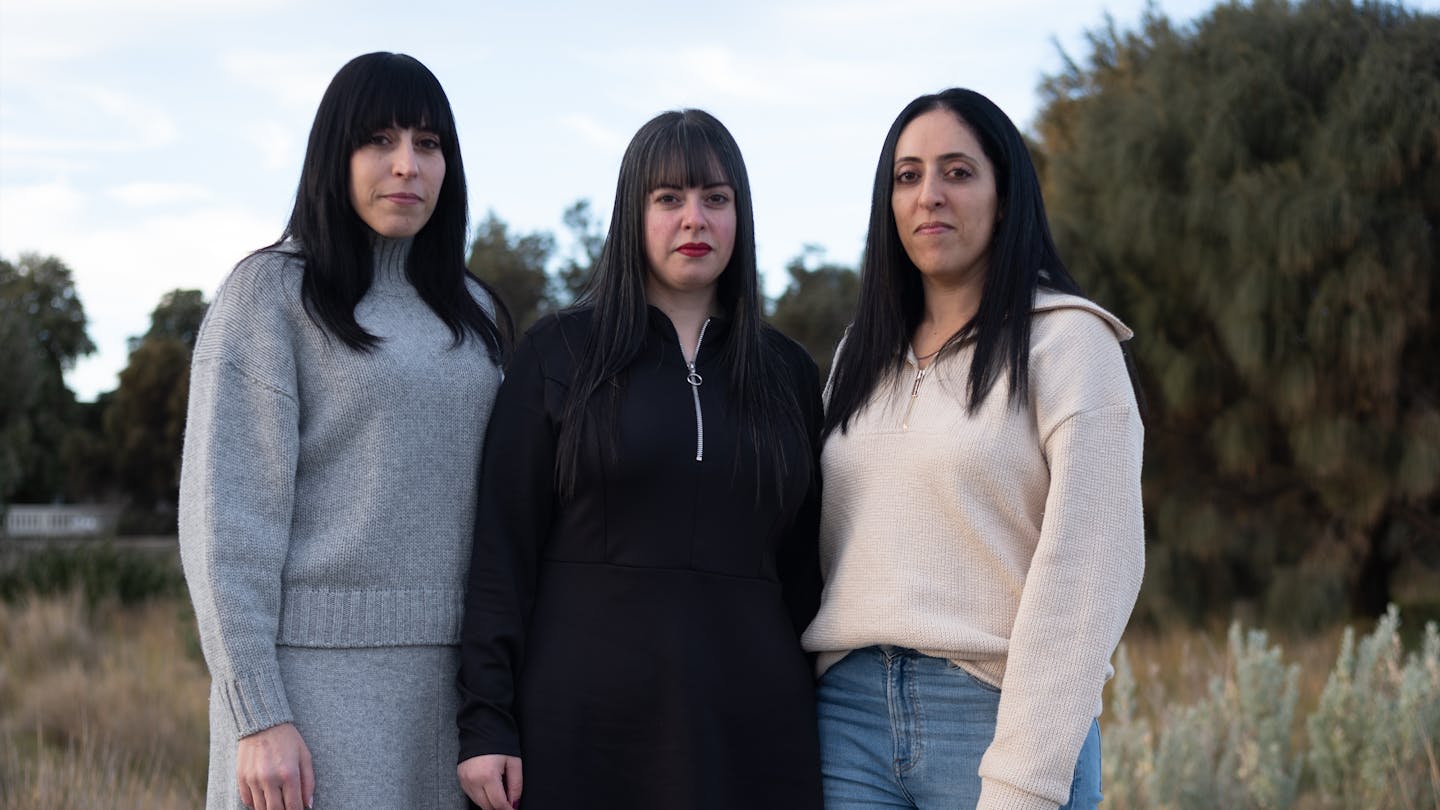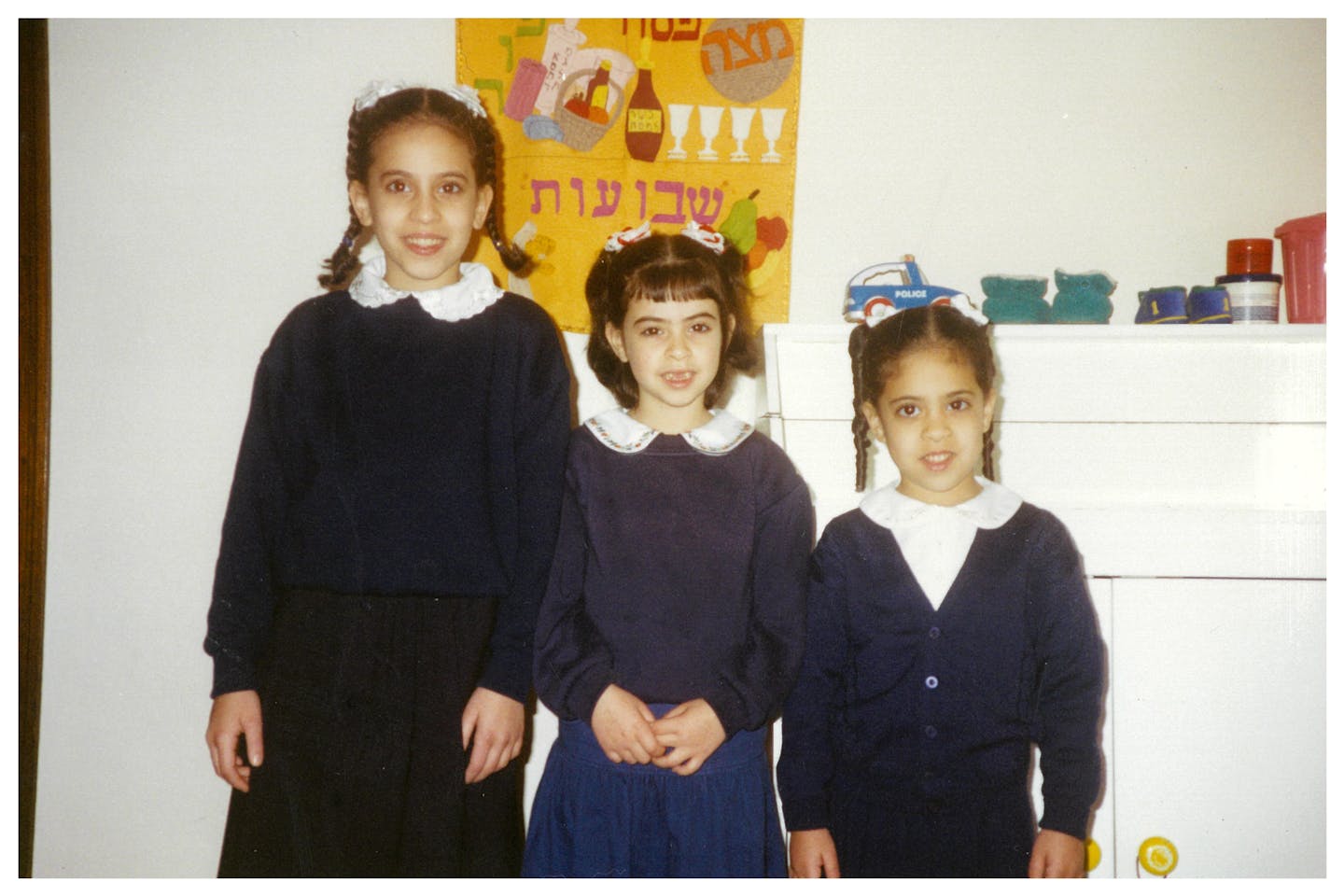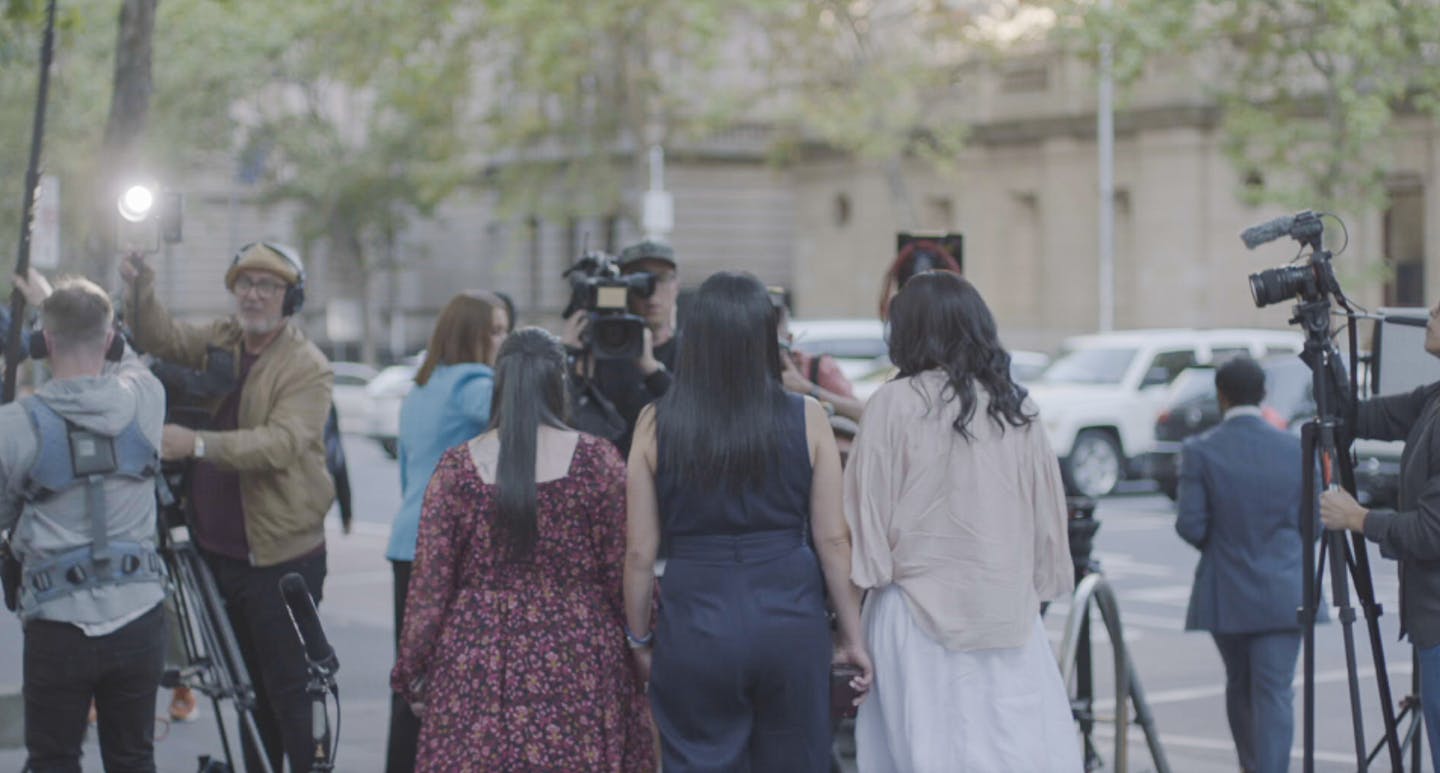
Between 2019 and 2023, I reported on the Malka Leifer case for The Conversation. As an international lawyer, my focus was on the attempt to extradite Leifer from Israel to Australia for trial. Leifer had been principal of the Adass Israel school in Melbourne and was accused of sexually abusing three sisters who had been students at the school.
Watching Surviving Malka Leifer was revelatory. This new film, directed by Adam Kamien, centres the survivors of Leifer’s abuse. Sisters Nicole Meyer, Dassi Erlich and Elly Sapper reveal their trauma and claim their power through this film.
Surviving Malka Leifer is challenging to watch, but can teach viewers much about trauma, persistence and survival.
Ultra-Orthodox upbringing and vulnerability
The girls were born into the ultra-Orthodox Adass community in Melbourne. The community is described in the documentary as insular and fundamentalist. Girls and boys were segregated. The girls’ education focused on preparation for marriage, rather than mastery of curriculum. The sisters received no sex education, and had no access to television or digital media.
The film shows how such communities avoid involving outside authorities. A former mayor of the Immanuel settlement in the West Bank, where Leifer fled from Australian justice, says on camera “we don’t believe in non-Jewish law”. Instead, sex offenders are “treated” by the community rather than handed over for punishment by the state.
The sisters tell the filmmakers that they were abused by their parents throughout their childhood. They were physically beaten, emotionally abused and deprived of food. Dassi says that when Leifer told her “this is what a loving mother does”, she believed it because she had never experienced a loving parental relationship.

Justice delayed is justice denied
Surviving Malka Leifer follows Elly, Dassi and Nicole through the torturous process of seeking justice. The sisters are interviewed alone and together and we see their video diaries.
While the sisters recount their abuse, we are often taken into a constructed dollhouse, classroom and courtroom where the sisters are represented as tiny dolls. A spider moves about these constructed rooms – it appears enormous relative to the dolls.
Alongside Freya Berkhout’s haunting original music and the raw accounts of the documentary subjects, these devices heighten the sense of risk and vulnerability in the film. As we follow the chronology of the sisters’ campaign to bring Leifer to Australia, we become ever more engaged in their rising panic about whether she will face justice.
In 2008, Dassi’s allegations of sexual abuse by Leifer were brought to the attention of a teacher. The school board met and put the allegations to Leifer, who refuted them. The allegations were not taken to police. The same day, the wife of a school board member facilitated travel arrangements for Leifer to flee to Israel.
Dassi discovered her sisters had also been abused by Leifer. In 2011, Dassi, Nicole and Elly made formal statements to Victoria Police. Australia sought Leifer’s extradition from Israel in 2013.
Leifer was arrested in 2014 but later bailed. The prosecutor would later argue she feigned mental illness to escape proper hearings of her matter for many years. In 2018, she was again detained when evidence revealed she was living freely in the Immanuel settlement.
Kamien’s film integrates the complexities of the legal process with the experiences of Leifer’s victim-survivors. We see how Leifer was protected by senior religious and political figures.
Throughout the film we learn about the sisters’ psychological torment, to the point of suicidality and hospitalisation. The delay in justice is central to the film’s narrative. The sisters’ trauma was compounded over their many years of campaigning and waiting.
Retraumatisation through the trial process
Some of the most upsetting sequences reflect the retraumatisation of Nicole, Dassi and Elly through the trial process. By the time of the trial in Melbourne, almost 100 court hearings had been held across two countries. The initial set of 74 charges was reduced to 29.
The sisters had to give evidence separately, without each others’ support in the courtroom. They describe on camera degrading experiences of cross-examination, including the insinuation that sexual activity with Leifer was consensual and that they had contaminated their evidence through collusion.
Retraumatisation is acute for Nicole, some of whose evidence was ruled inadmissible. The trial judge also decided that the jury could not hear evidence regarding how the school board assisted Leifer to flee to Israel. Former Victorian Premier Ted Baillieu, a long time advocate for the sisters, claims in the documentary that these rulings limited the jury’s confidence to reach findings against Leifer.
After a three week trial and ten day jury deliberation, Leifer is found guilty on 18 charges relating to Elly and Dassi, including six charges of rape. She is sentenced to 15 years imprisonment, with an 11.5 year non-parole period.

Leifer is found not guilty of the charges relating to Nicole. Nicole describes this outcome as a “win” for Leifer. Her video diaries reveal grave emotional distress over subsequent months.
Surviving Malka Leifer tells several important stories. We see how the perceived interests of an insular religious community are prioritised over the victims of sexual abuse. We see how legal processes, especially when protracted, re-traumatise victims and maintain their vulnerability as abusers pose counter-narratives before courts.
We also see three women who have persisted through unimaginable trauma in their campaign for justice. Their courage is breathtaking.
Surviving Malka Leifer is on Stan from Sunday.
The National Sexual Assault, Family and Domestic Violence Counselling Line – 1800 RESPECT (1800 737 732) – is available 24 hours a day, seven days a week for any Australian who has experienced, or is at risk of, family and domestic violence and/or sexual assault.
This article is republished from The Conversation, a nonprofit, independent news organization bringing you facts and trustworthy analysis to help you make sense of our complex world. It was written by: Amy Maguire, University of Newcastle
Read more:
- Half a century of the ‘male gaze’: why Laura Mulvey’s pioneering theory still resonates today
- Mushroom murders, riotous mockumentary and a surveillance thriller: what to watch in October
- Why the internet (and Gen Z) is still obsessed with Twilight, two decades on
Amy Maguire receives funding from the Australian Research Council.


 The Conversation
The Conversation
 Associated Press US News
Associated Press US News Raw Story
Raw Story Cover Media
Cover Media AlterNet
AlterNet WCPO 9
WCPO 9 The Texas Tribune Crime
The Texas Tribune Crime The Fashion Spot
The Fashion Spot